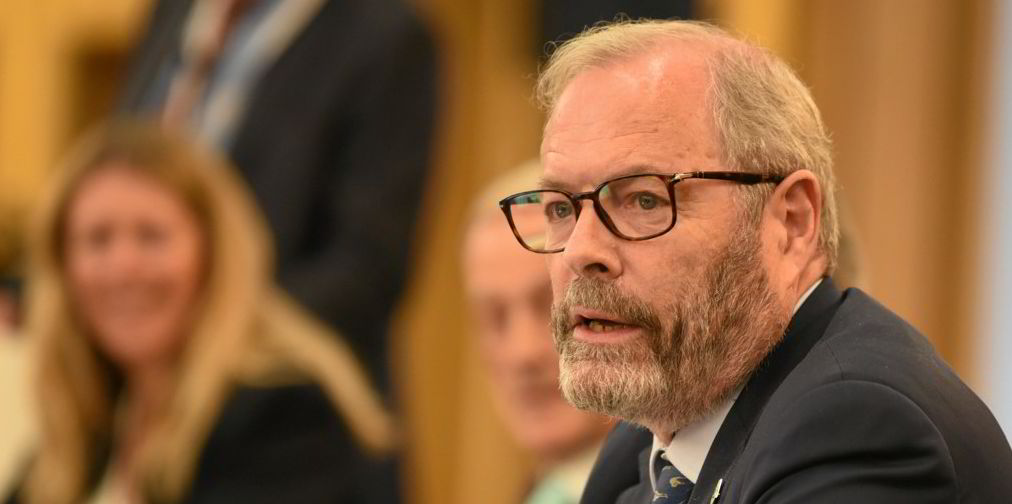Had Michael Parker done nothing at all to steer global shipping banks to measure and report the carbon intensity of their loan portfolios, he might simply have gone down as the most important lender to the maritime industry of his generation for more than three decades of work with US financier Citi.
But that distinction wasn’t enough for Parker. Just what was it, then, that spurred him into laying the groundwork of the Poseidon Principles protocols that today represent about 65% of global ship finance?

It was pragmatism more than ideological fervour. “I was a climate sceptic many years ago, and I’m no tree-hugger,” he tells TW+ with characteristic bluntness.
What he was, though, was a founding director of the Global Maritime Forum, and discussions beginning as early as 2017 formed the basis for the principles unveiled by an initial group of 11 banks in June 2019. The first discussions within the forum came around the same time as the formation of the Taskforce on Climate-Related Financial Disclosures (TCFD).
“I was asked by our environmental risk team in New York if our shipping business could be a pilot for our TCFD work, realising that if I said ’no’, something might be imposed on us,” Parker says.
He describes the efforts of “a group of like-minded people … to make sure that the business didn’t become a victim of misunderstanding and ignorance” from outside pressure groups.
Even without a well of ideological zealotry, he found a clear direction.
“I felt it was transformational for the industry. It’s better to be led by people who understand the industry and are pragmatic, recognising the constraints involved in the development of new fuels, which is an issue I am optimistic will get resolved.”
The Poseidon Principles banks announced a “significant revision” in October to the reporting framework, making it tougher and closer to Paris climate targets.
Reflecting on how far the protocols have come against initial expectations, Parker says: “We’re much further down the road than I’d expected, but we’re not where we need to be. There are still a few gaps,” he concedes, while remaining optimistic that lenders in China and South Korea are nonetheless sympathetic to the Poseidon goals. “We’ve come quite a bit further than we expected, but we haven’t finished.”




